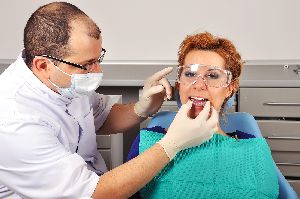A Guide to Different Types of Dental Trauma

Dental trauma refers to any injury that affects the teeth, gums, or associated bones and soft tissues. This occurs as the result of forceful impact to the mouth, which frequently happens during contact sports, traffic accidents, and falls. It can cause difficulties with speaking and eating, as well as lead to other oral health issues. Thus, it’s important to address injuries right away to preserve your smile and oral function. The following guide goes over different kinds of trauma and remedies used for recovery.
What Are Some Common Types of Dental Trauma?
Most people with dental trauma see an endodontist who specializes in this area of care. To determine the correct treatment option, they must properly diagnose the injury. Here are some of the main problems that patients experience.
- Chipped or Fractured Teeth: These make up the largest percentage of dental injuries. This is when the outer layer of the tooth cracks or breaks.
- Subluxation: A subluxation means there’s damage to the structures supporting a tooth, causing it to be loose.
- Avulsion: With an avulsion, the tooth has completely dislocated from the socket.
- Lateral luxation: This is defined as tooth displacement due to the fracture of a nearby bone.
- Intrusion: An intrusion describes a tooth that’s been forced into the bone.
- Extrusion: When an extrusion happens, the tooth has been pushed away from the bone.
How Is Dental Trauma Treated?

Treatment of a dental trauma will depend on which category the injury falls into and how severe it is. Chips and tooth fractures can often be fixed by reattaching the broken piece, applying a natural-looking filling, or putting on an artificial cap.
Typically, displaced teeth require repositioning and splint stabilization. A soft diet is recommended for a couple weeks, and the area will be closely monitored. If the nerve becomes infected, root canal therapy may be necessary.
For an avulsion, there’s a good chance the tooth can be saved with immediate treatment. It will be placed back in the socket and stabilized with a splint. Intrusions are usually taken care of using spontaneous eruption. Orthodontic or surgical repositioning might also be implemented and a root canal performed to prevent resorption.
If you’ve sustained dental trauma, trust Grassi & Grassi, PC to help restore your smile. Serving the residents of Monroe County, NY, for more than 40 years, they’re dedicated to providing high-quality endodontic care that delivers remarkable results. Their team of skilled professionals will evaluate your injury and create a customized treatment plan focused on improving your oral health. Call (585) 424-1111 to schedule an appointment, or visit them online to learn more about their services.
About the Business
(3 reviews)
Have a question? Ask the experts!
Send your question

